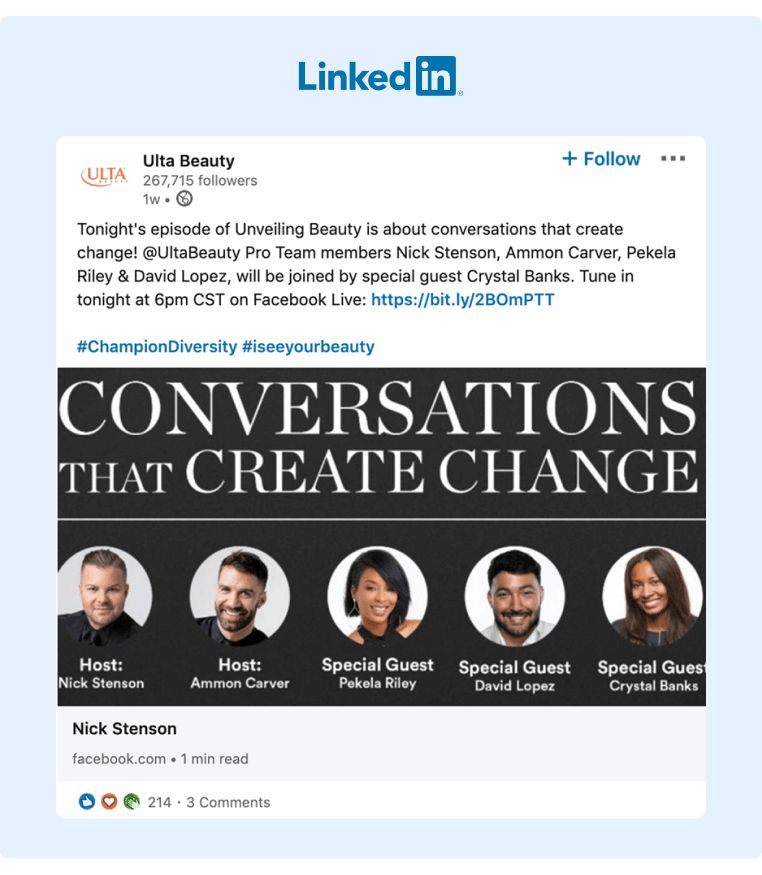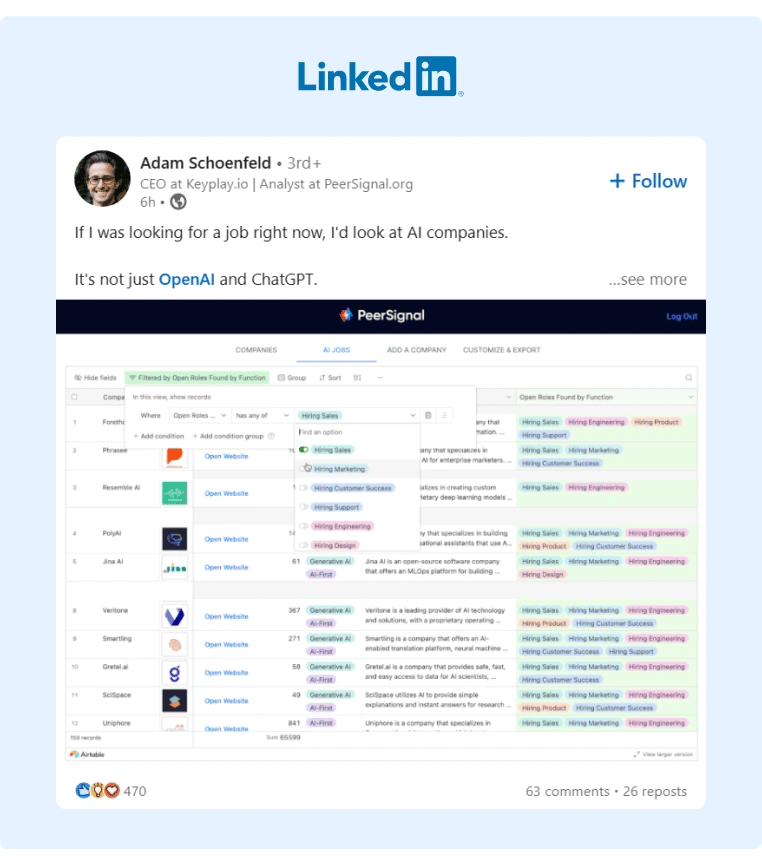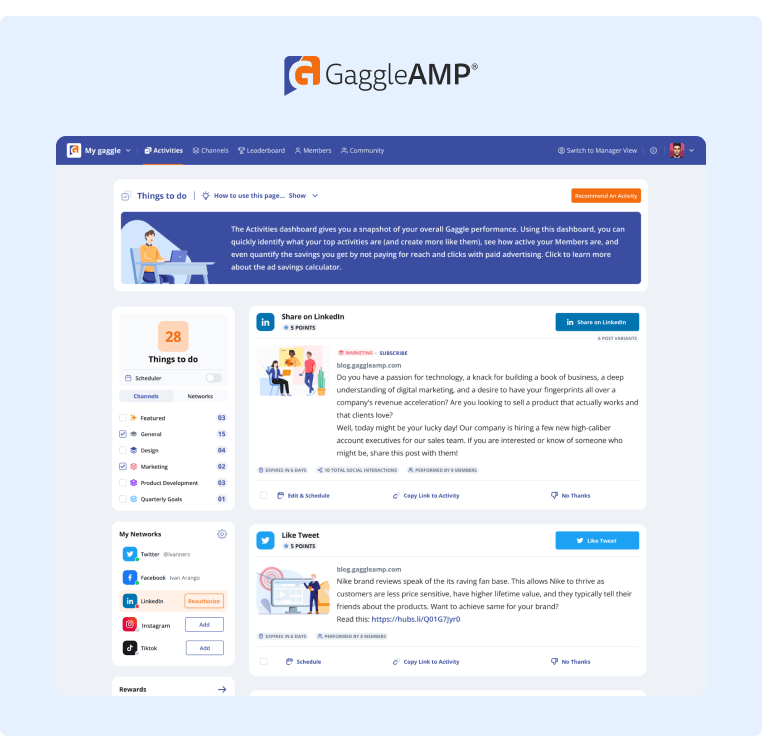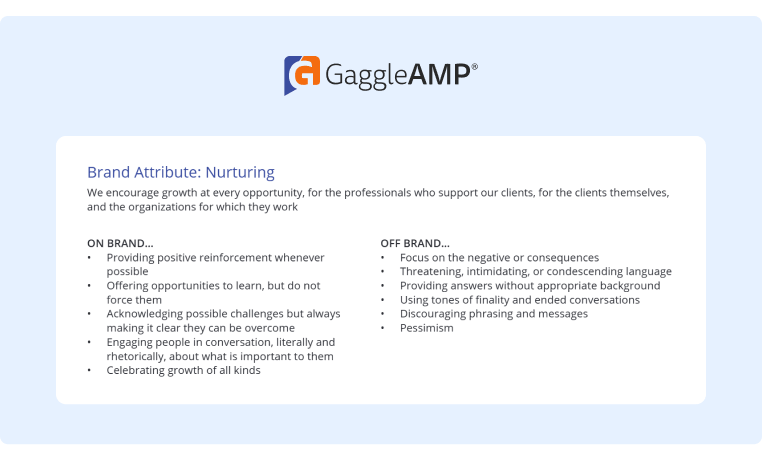How to Craft an Effective Social Media Policy for Your Company
Imagine this scenario: you own a company that you’ve spent time, money, and employee resources on fine-tuning its social media marketing. Your brand awareness is optimal, your engagement top-notch, and even better, you’re seeing conversions.
Then, one day, an employee makes an inappropriate comment on a social platform. Now your brand’s hard-earned reputation is at risk because of that employee’s poor judgment.
If you’ve ever wondered why you need an employee social media policy, well, here’s your answer: One bad comment (made by an employee) can erase all of that hard work.
Remember, your employees are also the face of your business. They represent your brand and interact with your customers. Therefore, an employee-friendly policy with social media guidelines to protect your brand’s reputation needs to be in place.
Knowing what you can (and can’t say) will help boost employee confidence and employee engagement on social media. We’re here to help you find that balance between empowering your employees to use social media to your company’s advantage while keeping appropriate social media restrictions in place to prevent damage to your brand.
Read on to learn about the benefits of a strong social media policy, what a social media policy should include, and examples of social media policy templates.
Benefits of a Strong Social Media Policy
A social media policy can be a powerful asset for your business and employees. Here are some benefits of a strong social media policy:
Diversity and Inclusion Initiatives
The benefits of strong diversity and inclusion are well-documented. A majority of job-seekers consider it an important factor when choosing jobs. Your company can show its commitment to these values by ensuring its communication is respectful and inclusive and making sure employees understand the importance of doing the same in their communications.

Source: CareerArc
By enforcing consequences for those who, for instance, have engaged in hate speech online, your company can show it stands by its values. Social media is also a valuable forum to spread the word about the specific initiatives and programs that your company is undertaking for diversity and inclusion.
Protects You and Your Employees
Employees need to be well informed about their legal boundaries and the potential consequences of violations. A robust social media policy protects your company and employees from legal issues related to defamation and harassment.
While you want your employees to talk about your company, you don’t want any intentional or unintentional leaks of confidential information. Another important facet of your social media policy, which helps protect against data breaches, is how and when social media is used at work. For example, a company might not like employees to post pictures of certain areas of the workplace (e.g., doctor’s exam room or lab).
Empowers Employees
As an employer, you want your social media policy to be actionable and accessible. The first step is creating guidelines that are clear and detailed enough to avoid confusion. The next step is offering training and resources to help employees understand and effectively use social media.
In doing so, your employees become empowered and confident in their digital interactions.
Employee Advocacy
When an employee is confident and comfortable with how to talk about your company’s brand on social media, they are more likely to engage in employee advocacy, which can be a game-changing tool. Personal, organic chatter about a brand is far more effective than formal channels of communication. In fact, The Edelman Trust Barometer shows that people find regular employees (54%) more credible than a company’s CEO (47%).

This content can range from sharing positive stories about their workplace and experiences to increasing the reach and credibility of company news, initiatives, and products.
Your social media policy plays a role in guiding how your employees talk about your company. You might be surprised that this is something employees are more than happy to have. 62 % of all employees would use their personal accounts to post company content if it was written for them.
We also have powerful tools like GaggleAMP, which can curate content for your employees’ social media and help spread brand awareness.

Employer Branding
Your employees’ actions are a direct reflection of your company’s brand. Think of it this way: you’re chatting online with a software company employee, and you bring up a software query that you’ve been wondering about. When the employee answers, they appear knowledgeable, smart, and respectful. This positive interaction reflects well on our hypothetical employee’s company. After all, it shows the quality and caliber of those who work there.
But, what if that employee had responded in a non-professional manner? Negative or controversial posts can damage your company's reputation, so it is critical to mitigate these risks.
The benefits of employer branding extend to both customers as well as prospective employees. A consistent social media policy helps ensure alignment across the board with your company’s values and messaging.
What Does the Social Media Policy Include?
An employee-friendly social media policy needs to be clear, concise, and easy to understand. Now, let’s get down to the specifics of what a social media policy should include:
Guidelines on Appropriate Social Media Etiquette
Although an employer cannot control an employee’s personal social media, they are well within their rights to set forth restrictions on issues like hate speech and confidential company information.
Use of Employer Social Media
When it comes to company social media accounts, be thorough and detailed in the guidelines and rules that you set. You’d rather have it all down on paper than run into massive problems due to a lack of clarity.
Be as specific as possible about how to engage with clients, partners, and stakeholders. This can cover grammatical conventions, emoji use, sharing content without fact-checking, and monitoring account activity. This section can also outline a plan of action in case there is a crisis or if terms are violated.
Legal and Security Guidelines
Include rules related to personal social media use on business devices and vice versa. Be sure to mention responsibilities and roles when it comes to using employer social media accounts. Other pertinent information to include are guidelines on creating passwords, expectations of keeping software and devices updated, information about security threats, and procedures for raising an issue or conflict resolution.
Brand Voice
Teach your employees how to speak about your company! Many employees refrain from doing so because they’re afraid of making mistakes. By training them on how to promote your brand, you empower them to become employee advocates.

A sample of our own brand voice guidelines here at GaggleAMP.
Once you have your social media policy content ready, it’s time to format it.
Social Media Policy Template
Making a social media policy from scratch can be time-consuming. However, a good social media policy template can help.
Before picking a template, you might also want to look at some examples of social media policy documents that have done a great job. For instance, the Government of BC has an easy-to-navigate and interactive social media policy. Intel’s policy document, likewise, is well-structured and transparent. Another good example is the social media policy of Tufts University, which is quite thorough and interlinked.
But if you’re looking to simplify the process while not compromising on quality, you should check out GaggleAMP’s social media policy for employees’ template. And if you need an employee advocacy tool to really give your employee engagement a boost, consider GaggleAMP for your employee advocacy needs, too. Book a demo today!











